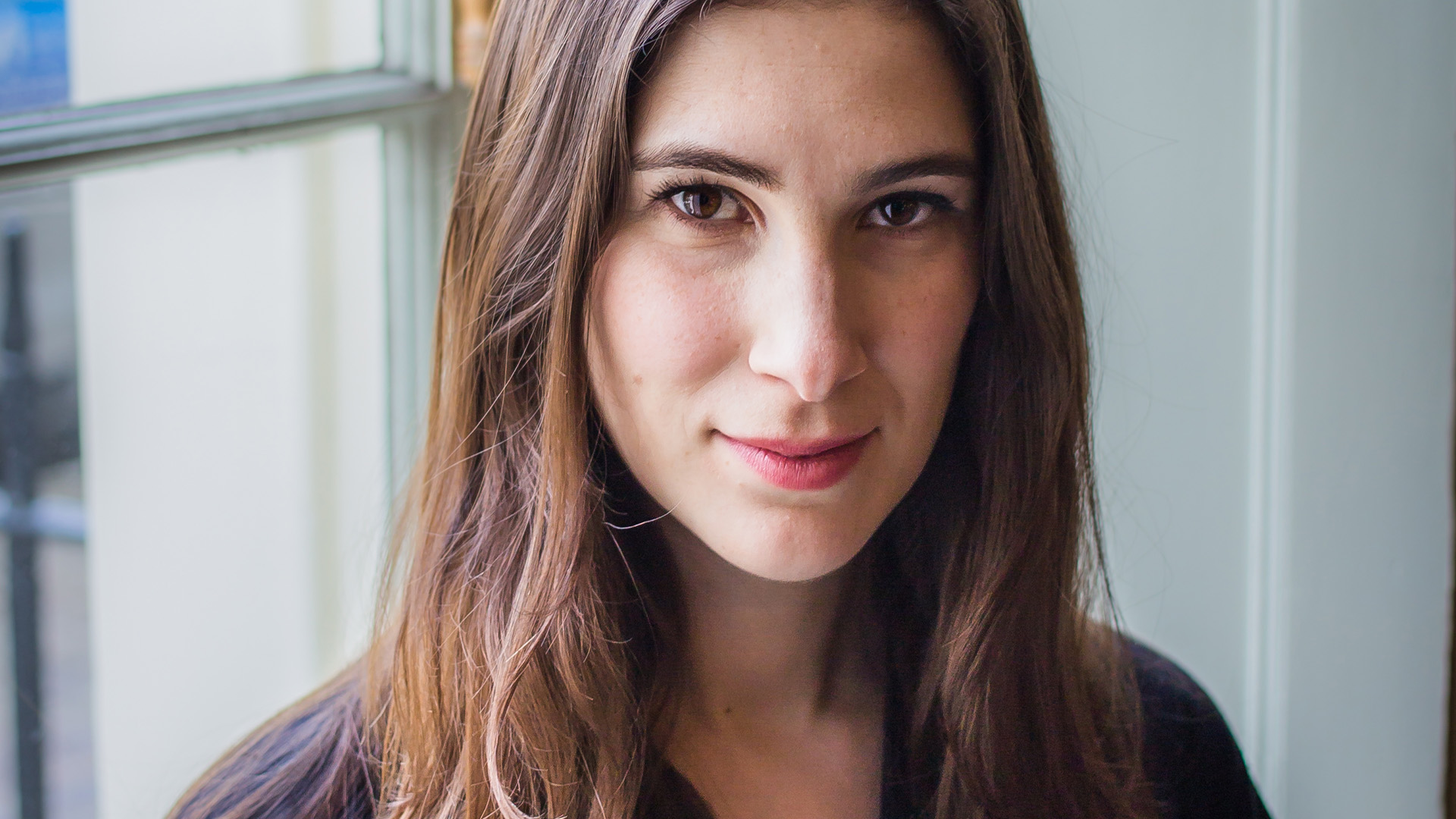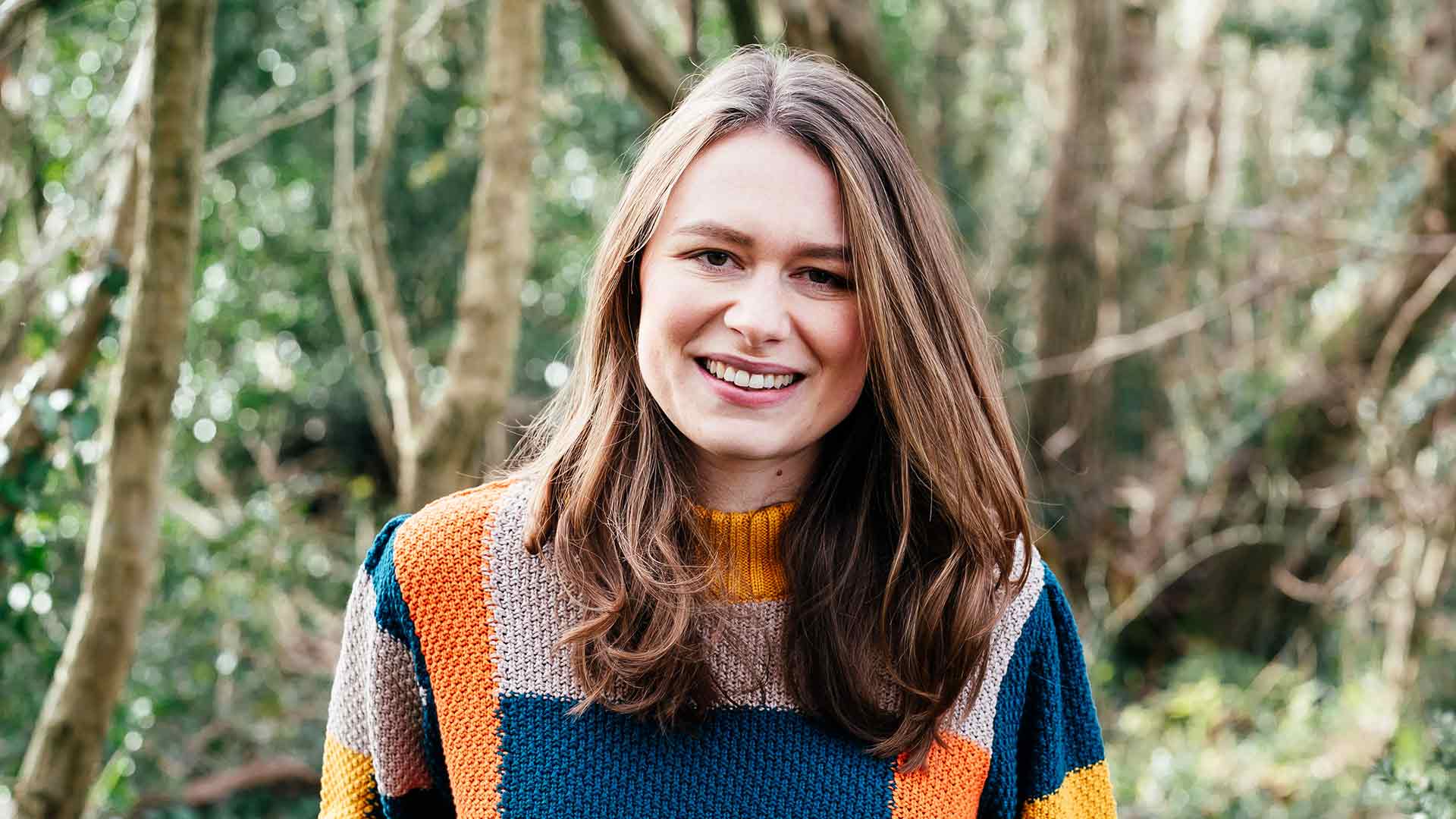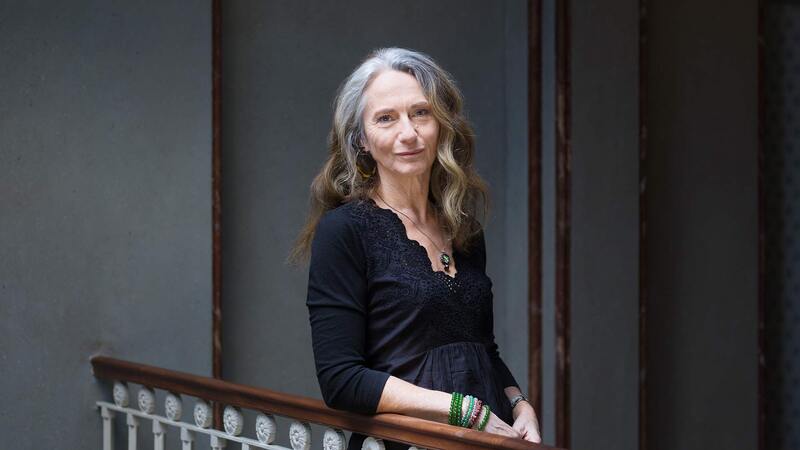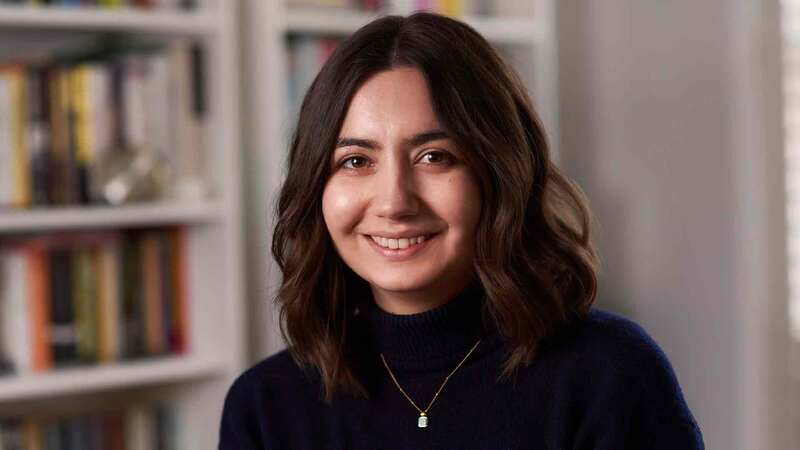You are viewing your 1 free article this month. Login to read more articles.
Katherine Rundell | 'I had a really strong idea of what I wanted it to be about, but no coherent plot;plots are not my strong point'
The idea that Katherine Rundell keeps coming back to is bravery. Whether we are talking about her new book, The Wolf Wilder (Bloomsbury, September), or what she wants from books in general, she keeps returning to the idea of learning to be brave. She says: “A lot of the books I read as a child allowed me to try out different kinds of bravery and I wanted to write something that might be another kind of bravery.”
Rundell’s heroine in The Wolf Wilder is Feodora, Feo for short, who lives in the snowy woods of Russia with her mother. They work as wolf wilders, taking wolves who were bought as pups by wealthy people and then abandoned, and “untaming” them. While wolf wilding may be fictional, lion wilding is real. Rundell spent a portion of her childhood in Zimbabwe, where the proliferation of people buying big cats and then getting rid of them once they grow is a real problem. Rundell says: “It’s called feralling and that’s where the idea of wanting to atone and restore what we’ve taken from animals came from. I wanted Feo to be a voice for allowing wild animals to be wild and not claiming them for our own vices. I wanted to write about a child’s interaction with animals on a bone-deep level.”
Feo is a wonderful creation; fierce and bold and unconventional. Rundell says: “I would love to say that she popped into my head fully formed but no, my heroines are built, they’re constructed from scratches and errors.” When Feo’s mother is arrested by the corrupt General Rakov, Feo is flung into an adventure to rescue her mother and ends up embroiled in the burgeoning Russian Revolution. Rundell says: “It’s about learning to fight not just for yourself but for other people. At the start Feo is very happy but completely cut off from the rest of the world and it’s only when terrible things start happening that she becomes engaged with the rest of the world and wants change for people other than herself.”
The Wolf Wilder occupies a similar space to Rundell’s previous book, the much-loved and greatly acclaimed Rooftoppers (Faber, 2012), in that they are both set in heightened versions of the real world but stop short of incorporating “real” magic. Rundell says: “I’m really working on that idea—what realism do we want from our books? I wanted to write something that felt like a fairytale would be if it was transposed on to the real world, like a palimpsest that could be laid.” The first line of The Wolf Wilder is very much a nod to this: “Once upon a time, a hundred years ago, there was a dark and stormy girl.”
Rooftoppers is somewhat more whimsical than The Wolf Wilder, which has much more explicit peril and darkness in it. Rundell says: “I very consciously wanted it to be a little darker. The bits of my own work where I’m least content is when they shade into cute—I was really anxious that this not shade into cute or twee. I wanted to have that combustion engine of fear there to mediate against that but I was also very conscious that I didn’t want to overload children. So although people get hurt, people remain themselves. Nobody is destroyed by it. I hope that means that the fear is manageable.”
Looking forward
Rundell had elements of The Wolf Wilder in place when Rooftoppers started attracting attention: “I had a really strong idea of what I wanted it to be about, but no coherent plot—plots are not my strong point! When I wrote Rooftoppers I didn’t feel the eyes of so many readers that you feel like you need not to let down.”
Of its success—Rooftoppers was shortlisted or won most of the children’s prizes it was eligible for—Rundell says: “The prize thing was absolutely wonderful. It brings you readers and that’s the thing you want with every bone in your body but—how to say this without sounding churlish?—I’m very aware that people will have been saying, ‘Huh? Really?’ when it won prizes, so I don’t take it as a sign that I’ve got there yet. I’m still working out how to write books. I need more time.”
Rundell is an incredibly conscious and present writer who is deeply engaged and enthralled by the process of writing fiction and very aware of her readers: “It’s wonderful when adults read my books but the imagined reader for me is always a kid—and usually a kid with big desires who turns to books to find something they need.”
She also consciously decided to make one of her key characters, Ilya, gay: “We have this discourse at the moment about the need for children to see themselves in books and I wanted to write something that was about a kid for whom being gay is one small part of his immense life. It is a story about a boy who is gay but it is about something other than the fact that he is gay.”
Coherent core
Rundell is also a fellow in English Literature at All Souls College, Oxford. Part of the election process was sitting a three-hour exam based around a single word. For Rundell the word was “novelty”: “I wrote about Derridean deconstructionist theory and Christmas crackers . . . I feel like they might have let me in despite rather than because of it”. Her teaching there inevitably has an impact on her attitude to writing. She says: “Trying to encourage my students to think about the strategic choices that writers might be making does make me go back over my work. For example, with metaphor I find it easy to be quite scattergun. But if all of your metaphors have a coherent core then I think you get something that forms more cohesively as a novel and maybe you work that out from reading works from the likes of Tolstoy and Shakespeare.
“I also want my students to think about what kind of artist we have imagined Shakespeare to be and what we need him to be, and what we need art to provide us with. It is slightly different for children’s books, as to a point we know what we’re providing: a framework to practise literacy but also a framework in which to practise the things of the heart.”
On children’s books more generally, Rundell says: “I think it’s worth articulating again and again why we value the things that we value because as humans we have short memories and big imaginations. Children’s books taught me so much because they gave me access to so many different lives and proved to me that the world was huge and more multiple than I had imagined it. If we keep telling children that, then we might end up with sharp, caring citizens.”
I feel like we mark the difference between genders far more than we need to. Brave boys and brave girls have the same kind of desires
Rundell moved from Faber to Bloomsbury for The Wolf Wilder, and has committed to the publisher for two more books. The next one is set in the Amazon with four main characters, and she deploys a boy as her narrator for the first time: “I’m just writing a girl with a boy’s name and thus far it’s been fine. I feel like we mark the difference between genders far more than we need to. Brave boys and brave girls have the same kind of desires.”
And looking further ahead? “I feel like there’s a book I really want to write and I haven’t written it yet because I want to learn more about writing. But when I do, I know it will be a book that says you are right to be afraid but be brave anyway.”
Metadata
Imprint: Bloomsbury
Pub date: 10.09.15
Formats: EB (£9.99), HB (£12.99)
ISBN(s): 9781408854860/ 9781408862582
Rights sold: Commonwealth (excluding Canada)
Editor: Ellen Holgate
Agent: Claire Wilson, Rogers, Coleridge & White









